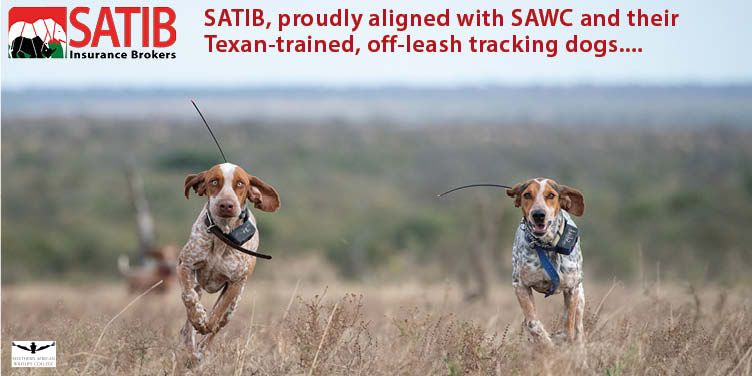In helping to counter rhino poaching and protect natural resources in the Greater Kruger Park, the Southern African Wildlife College uses a four-tiered approach, which incorporates the use of free-running pack dogs. These elite K9s are trained to work with well-trained field rangers supported from the air. Together these forces work with exceptional efficiency.
Since July 2018 when the Texan-trained pack of off-leash tracking dogs arrived in South Africa, the number of successful apprehensions of suspects has increased to milestone status.
According to the College’s counter-poaching data, when responding to incursions without any K9 asset, the apprehension rate is low, about 3-5%. Working with a K9 Unit comprising both on and off-leash tracking dogs increases success rates to almost 60%! This essentially means that rangers are 10 times more successful in apprehending poachers when they work with dogs than when they work without them.
In commending the rangers and their canine partners for their incredible efforts in arduous and often dangerous circumstances College CEO, Theresa Sowry said, “There is no single person who has made this project a success. It’s been combination of determined teamwork, high levels of professionalism and innovation, generous donor support and an enduring belief in the dogs and their capabilities in the field.”
The College’s K9 Unit was established at the end of 2015 and has gone from strength to strength. The arrival of the two packs of free-running hounds from Texas in 2018 was a turning point as the College broke new ground by continuously testing the free tracking and apprehension capabilities of dogs in the Greater Kruger National Park. The Texan dogs were successful on their very first deployment, and the pack dogs have since become a vital component in numerous operations.
Initiated with support and the sanction of the Kruger National Park, the College’s K9 Unit forms part of its four-tiered, learning-by-doing approach to help counter poaching. Along with the K9 Unit, this includes well-trained field rangers, aerial support and community interventions and engagement to help protect targeted species such as rhino.
While on-leash tracker dogs are commonly used by counter-poaching teams, pack dogs that run off leash are relatively new to the scene but have certainly proved their worth! They can track at high speeds over even the most difficult terrain; recent exercises have seen them cover 30 kilometres in two hours. Their top speeds, measured regularly over short distances, are around 40 kilometres per hour! Using aerial support to follow the dogs allows the rangers to catch up valuable time in the field.
The College’s applied learning approach, which has helped test proof of concept with the free tracking dogs, will certainly now bolster the use of dogs as part of other successful counter poaching operations. As the demand for well-trained dogs and handlers grows, there is also potential for the College, as a SADC training institute, to play a major role in replicating the K9 Unit’s early successes in protected areas throughout Africa.



